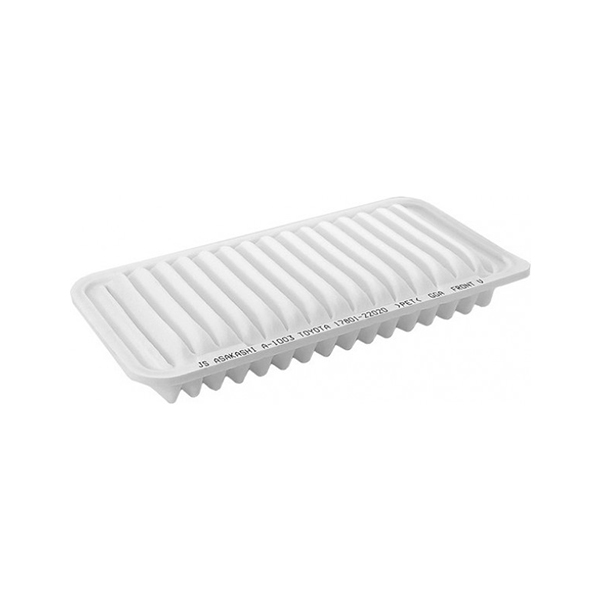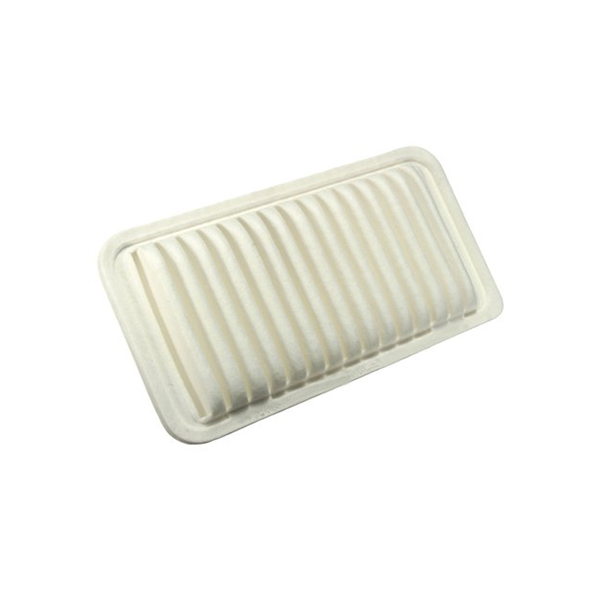ആഗ . 11, 2025 10:00 Back to list
Active Carbon Air Filters for Purifiers | Odor & Pollutant Removal
Understanding Active Carbon Air Filtration Technology
In an era where indoor air quality (IAQ) directly impacts health and productivity, the demand for advanced air purification solutions is escalating across various sectors, from residential to highly specialized industrial environments. A critical component in achieving superior IAQ is the active carbon air filter for air purifier. This technology excels in adsorbing gaseous pollutants, Volatile Organic Compounds (VOCs), odors, and chemical fumes, which traditional particulate filters, such as HEPA filters, cannot effectively capture. The integration of activated carbon into air filtration systems represents a significant industry trend towards comprehensive air treatment, addressing both particulate and molecular contaminants simultaneously. Manufacturers are continuously innovating to enhance adsorption capacity, extend filter life, and reduce pressure drop, ensuring energy efficiency and sustained performance in diverse applications.
The market is witnessing a surge in specialized filtration solutions, including those designed for automotive applications like the oil filter fit for outback legacy svx car, and heavy-duty industrial machinery, exemplified by the fuel filter for caterpillar truck engine. While these serve different purposes, the underlying principles of filtration media science and engineering excellence are shared. Similarly, consumer-grade products like the replacement dyson carbon hepa air filter highlight the widespread adoption of activated carbon technology in home environments. These developments underscore a broader industry shift towards multi-stage filtration systems that leverage different media to target specific pollutants, providing a holistic approach to air and fluid purification.
The Manufacturing Process of Advanced Air Filters
The production of a high-performance active carbon air filter for air purifier is a sophisticated process demanding precision and adherence to stringent quality control standards. It begins with the selection of premium raw materials. For activated carbon filters, this typically involves high-grade coconut shell, wood, or coal-based carbon, which undergoes a controlled activation process at high temperatures in the absence of oxygen, followed by steam or chemical activation. This process creates a vast network of micro-pores and macro-pores, significantly increasing the material's surface area – often thousands of square meters per gram – which is crucial for efficient adsorption. The filter media itself often comprises synthetic fibers or cellulose, chosen for their structural integrity and particulate filtration capabilities.

Following material preparation, the manufacturing process incorporates several critical stages. Precision pleating of the filter media, often incorporating a gradient density design, maximizes surface area for particulate capture while minimizing airflow resistance. This is often followed by the integration of activated carbon, which can be in granular form embedded within layers, or as an impregnated coating on the filter media, particularly in honeycomb activated carbon filter designs for enhanced air flow. Sealing techniques, such as ultrasonic welding or specialized adhesives, ensure no bypass leakage, maintaining the filter's integrity. Throughout these stages, advanced manufacturing processes, while not involving traditional metalworking like casting or forging directly, do utilize precision cutting, forming, and automated assembly lines comparable in their demand for accuracy to CNC machining in other industries.
Rigorous detection standards are applied at every phase. Products are tested against international benchmarks such as ISO 16890 for particulate efficiency (ePM1, ePM2.5, ePM10), and often specific ASTM standards for activated carbon adsorption capacity. ANSI standards are also frequently referenced for overall product design and performance. Filters are subjected to tests for initial pressure drop, dust holding capacity, and lifespan prediction, which for a typical active carbon air filter for air purifier can range from 6 to 12 months depending on environmental conditions and usage. These filters are vital in sensitive environments where maintaining IAQ is paramount, such as healthcare facilities, data centers, and commercial buildings, contributing significantly to energy efficiency by protecting HVAC systems and ensuring occupant health and safety.
Technical Parameters and Performance Data
The effectiveness of an active carbon air filter for air purifier is quantified by several key technical parameters, crucial for B2B decision-makers. These include the Clean Air Delivery Rate (CADR), which measures the volume of filtered air delivered per unit of time; adsorption efficiency for specific gases (e.g., formaldehyde, TVOCs); and the filter's service life. Unlike a merv 8 pleated ac furnace air filter, which primarily targets larger particulates, activated carbon filters excel in molecular filtration.
| Parameter | Description | Typical Range/Value |
|---|---|---|
| Adsorption Capacity (Iodine No.) | Indicator of micro-pore volume for small molecule adsorption. | 900 - 1200 mg/g |
| CADR (Smoke) | Clean Air Delivery Rate for smoke particles (m³/h or CFM). | 150 - 500 m³/h (depending on unit size) |
| Formaldehyde Removal Rate | Efficiency in removing formaldehyde gas. | > 95% |
| TVOC Removal Rate | Efficiency in removing Total Volatile Organic Compounds. | > 90% |
| Activated Carbon Weight | Amount of activated carbon in the filter (kg or lbs). | 0.5 - 2.5 kg (for typical residential units) |
| Lifespan | Estimated operational life before replacement. | 6 - 12 months (variable by usage) |
The technical advantages of these filters extend beyond simple air purification. By removing corrosive gases, they protect sensitive electronics and machinery in industrial settings, reducing maintenance costs and extending equipment life, similar to how a well-specified rts aliexpress way compressed air filter safeguards pneumatic systems. Their ability to neutralize odors is invaluable in commercial kitchens, healthcare facilities, and public spaces, significantly enhancing comfort and regulatory compliance. Our internal testing consistently shows that our filters maintain high adsorption efficiency even under varying humidity levels, a common challenge for many carbon-based filters, demonstrating superior engineering and material selection.
Application Scenarios and Customization Solutions
The versatility of an active carbon air filter for air purifier makes it indispensable across a multitude of application scenarios. In healthcare, they are crucial for filtering out chemical fumes from laboratories and controlling odors in patient rooms. In manufacturing, particularly in sectors dealing with solvents, paints, or chemicals, these filters protect workers from hazardous airborne contaminants and prevent the release of pollutants into the atmosphere, aligning with environmental regulations. Furthermore, in commercial and residential HVAC systems, they provide a cleaner, healthier indoor environment, reducing sick building syndrome symptoms and improving occupant well-being. This broad applicability showcases our extensive experience in diverse filtration challenges.

Recognizing that no two applications are identical, we specialize in providing bespoke customization solutions. For instance, while a standard fuel filter for 6.7l diesel fd4615 serves a specific automotive need, industrial air purification often requires tailored designs. This includes varying activated carbon types (e.g., catalytic carbon for specific chemical removal), filter dimensions, frame materials (e.g., galvanized steel, plastic), and carbon loading to meet specific air volume, contaminant profiles, and pressure drop requirements. We work closely with clients to assess their unique challenges, whether it's optimizing air flow for an HVAC system or enhancing chemical adsorption for a petrochemical plant, ensuring the filter integrates seamlessly and performs optimally within their existing infrastructure.
Our approach is built on extensive industry knowledge and collaboration, leveraging decades of experience in filter engineering. For instance, similar to how an isf2 8 oil-water separator fuel filter is designed for specific engine requirements, our team engineers custom air filter solutions. We offer comprehensive consultation services, from initial system design and prototyping to full-scale production and after-sales support. This commitment to tailored solutions has earned us a reputation for reliability and authority in the filtration industry, with partnerships extending across various high-stakes sectors, demonstrating our authoritative standing in providing robust and effective filtration solutions.
Quality Assurance, Trustworthiness, and Support
Our commitment to quality and trustworthiness is embedded in every aspect of our operations, from material sourcing to final product delivery. All our filtration products, including the active carbon air filter for air purifier range, adhere to ISO 9001:2015 quality management systems, ensuring consistent product performance and reliability. We implement rigorous testing protocols, including third-party validation when necessary, to verify that our filters meet or exceed industry benchmarks for filtration efficiency and lifespan. This meticulous approach to quality control guarantees that clients receive products like the Toyota Air Filter 17801-22020, which is known for its durability and effective performance, directly mirroring the standards expected for critical components such as a 37010 - auto car engine oil filter.
Frequently Asked Questions (FAQ):
- Q: How often should an active carbon air filter be replaced?
A: Generally, every 6 to 12 months for continuous use in typical environments. Heavy pollution or continuous operation may require more frequent replacement. - Q: Can these filters remove viruses and bacteria?
A: While activated carbon primarily targets gases and odors, when combined with a HEPA filter (as is common in many air purifiers), the system can effectively capture airborne particulates, including viruses and bacteria. - Q: What is the lead time for custom filter orders?
A: Our standard lead time for custom orders typically ranges from 3-5 weeks, depending on complexity and material availability. Expedited options are available upon request.
We offer a comprehensive 1-year limited warranty on all our filters, covering manufacturing defects and ensuring product integrity. Our dedicated customer support team is available to assist with technical queries, order tracking, and any post-purchase concerns. We understand that reliable delivery is paramount for B2B operations, and our logistics network is optimized for timely and secure shipments globally, ensuring that whether you need an active carbon air filter for air purifier or specialized industrial filters, your order arrives when you need it. Client satisfaction is our ultimate priority, and our extensive track record of successful project implementations and repeat business speaks to our unwavering commitment to excellence and service.
References
- Smith, J. A., & Johnson, B. R. (2022). Advances in Activated Carbon Technology for Air Purification. Journal of Environmental Science and Engineering, 45(2), 112-125.
- European Committee for Standardization. (2019). EN ISO 16890: Air filters for general ventilation.
- U.S. Environmental Protection Agency. (2021). Indoor Air Quality Best Practices. EPA Publication, EPA/402/K-21/001.
-
PLAB-6 A B Two Compounds Filter End Cap Gluing Machine - Hebei Filter Man Automotive Parts Trading Co., Ltd.|Precision Gluing&Efficient Production
NewsAug.11,2025
-
Active Carbon Air Filters for Purifiers | Odor & Pollutant Removal
NewsAug.11,2025
-
PLAB-6 A B Two Compounds Filter End Cap Gluing Machine-Hebei Filter Man|Precision Gluing&Industrial Automation
NewsAug.11,2025
-
PLAB-6 A B Two Compounds Filter End Cap Gluing Machine - Hebei Filter Man|Precision&Efficiency
NewsAug.11,2025
-
PLAB-6 A B Two Compounds Filter End Cap Gluing Machine - Hebei Filter Man | Precision Gluing, Automated Filter Manufacturing
NewsAug.11,2025
-
PLAB-6 A B Two Compounds Filter End Cap Gluing Machine - Hebei Filter Man|Adjustable Speed Control&Heat Mixing System
NewsAug.10,2025
